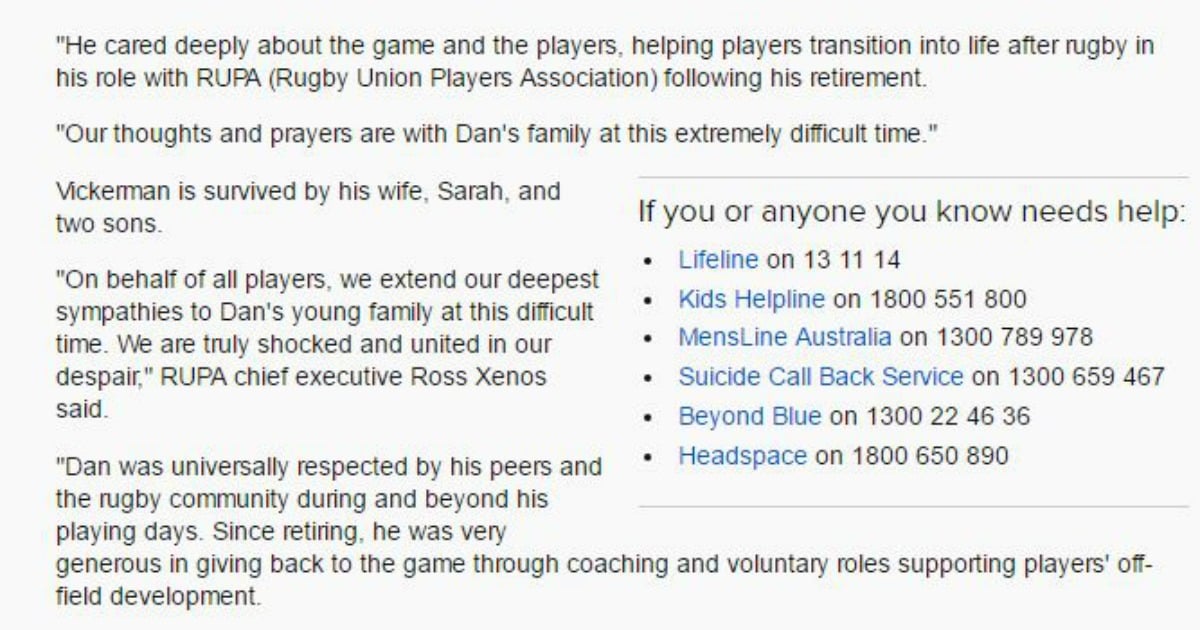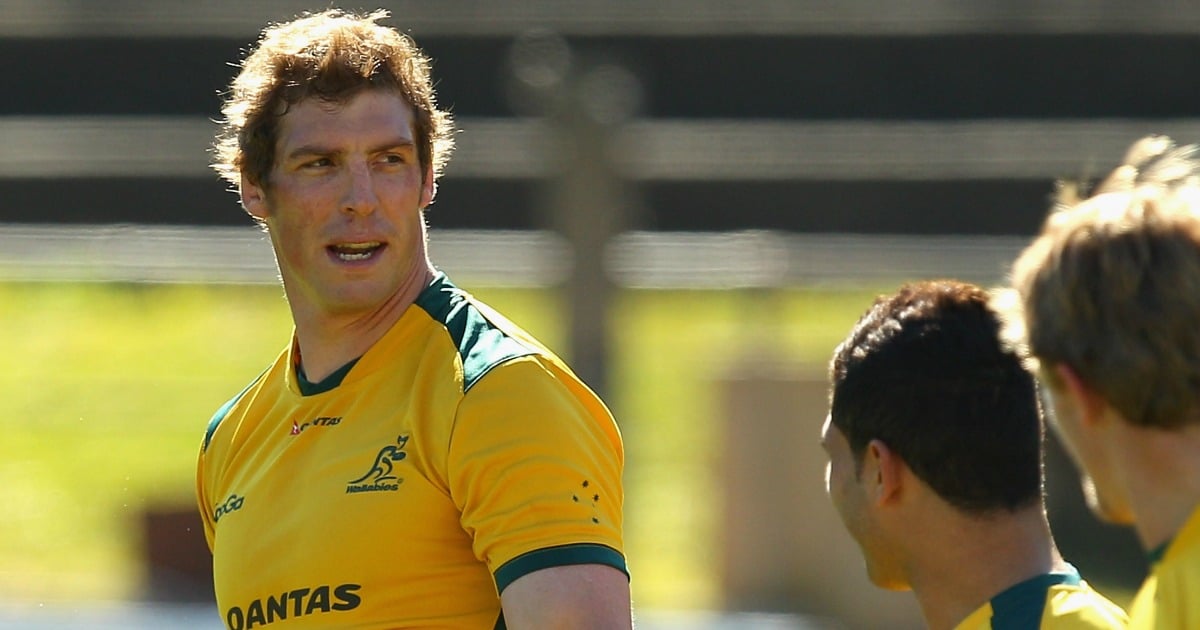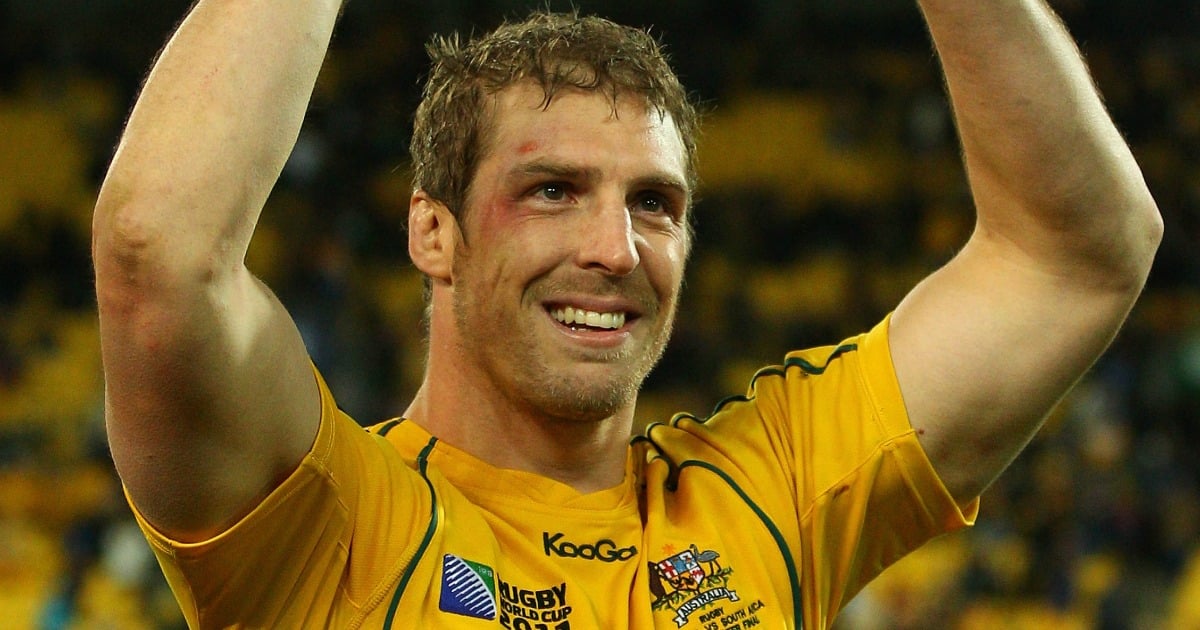When the media reported on Dan Vickerman’s death on Sunday, the response was immediate and overwhelming.
People were devastated.
Vickerman was 37, survived by a wife and two young sons. Countless tributes poured in for the former Wallabies player, who retired in 2012, with peers remembering him as a “much-loved character” with a “massive heart.”
But there was an undertone to the reports of Vickerman’s death, as well as the tributes. While no cause of death was reported, the presence of help-seeking information alongside the story said more than the words did.































































































